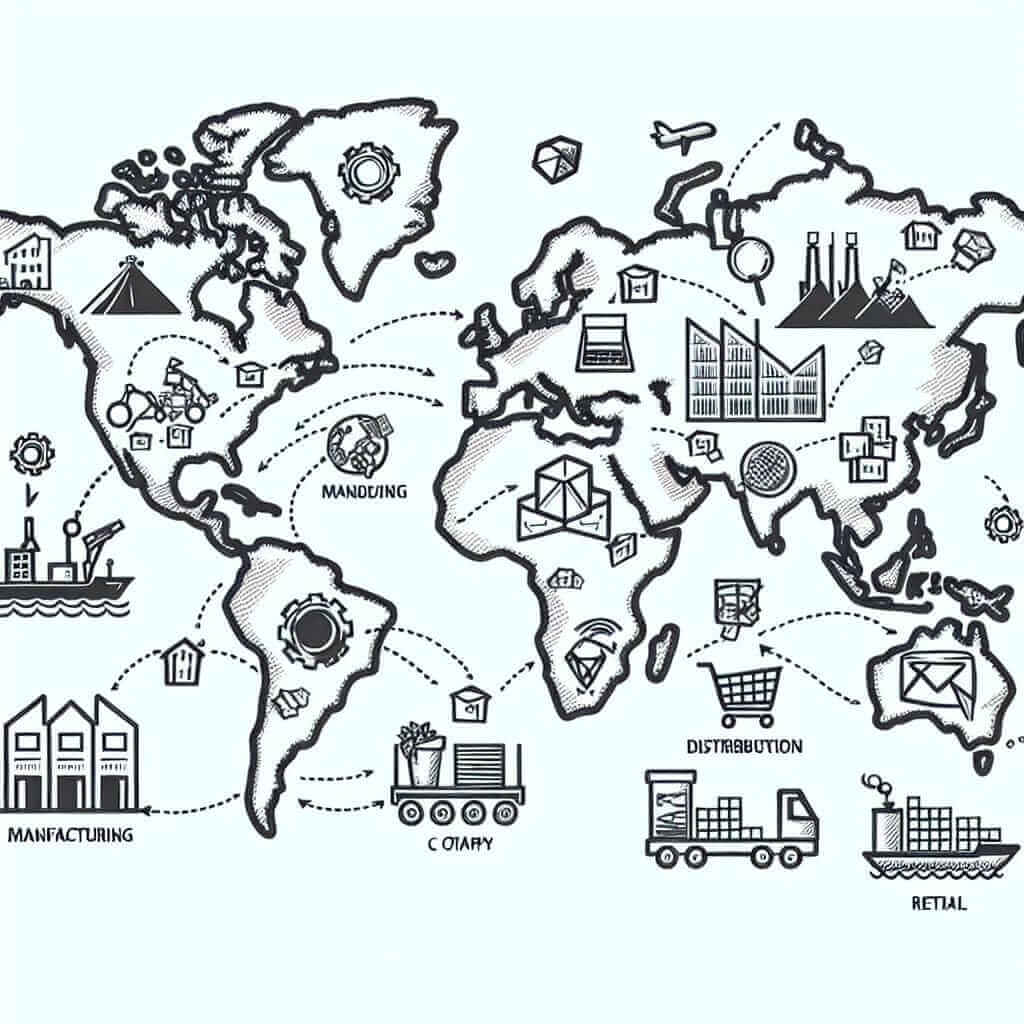Globalization, the increasing interconnectedness of nations through trade, technology, and cultural exchange, has profoundly impacted the business landscape. Understanding this impact is crucial for IELTS test-takers, particularly in the Writing and Speaking sections where you may be asked to discuss economic trends, cultural exchange, or the influence of multinational companies. This comprehensive guide will equip you with the vocabulary, insights, and strategies to confidently tackle globalization-themed IELTS tasks.
Understanding the Keyword: Globalization and its Impact
“Globalization” refers to the process by which businesses, cultures, and people around the world become increasingly interconnected. It’s driven by factors like:
- Technological Advancements: The internet, communication technologies, and efficient transportation systems have made it easier for businesses to operate across borders.
- Trade Liberalization: Reduced trade barriers and the rise of free trade agreements have facilitated international trade and investment.
- Increased Capital Flows: Globalization allows for easier movement of capital across national boundaries, leading to greater investment opportunities.
The “Impact on Business” is multifaceted, encompassing both opportunities and challenges:
- New Markets and Expansion: Globalization opens doors to vast new markets, allowing businesses to expand their customer base and increase revenue.
- Access to Resources and Talent: Companies can source raw materials, labor, and specialized expertise from a global pool, potentially reducing costs and enhancing innovation.
- Increased Competition: Businesses face greater competition from both domestic and international players, requiring them to become more efficient and innovative to remain competitive.
- Cultural Considerations: Operating in a globalized world demands cultural sensitivity and an understanding of diverse consumer preferences and business practices.
Illustrative Examples of Globalization’s Impact on Business
Let’s delve into specific examples to solidify your understanding:
-
The Tech Industry: Companies like Apple, Samsung, and Google have production facilities and customers worldwide. They leverage global supply chains and adapt their products to local markets, showcasing globalization’s reach.
-
The Fashion Industry: Fast fashion brands like Zara and H&M source materials and manufacture clothing in various countries, taking advantage of cost-effective labor and efficient logistics networks.
-
The Food and Beverage Industry: Coffee chains like Starbucks and Costa Coffee have established a global presence, adapting their menus and marketing strategies to cater to local tastes while maintaining brand consistency.
-
The Automotive Industry: Major car manufacturers operate assembly plants in multiple countries, sourcing components from a global network of suppliers to optimize production and meet local demand.
-
E-commerce Platforms: Platforms like Amazon and Alibaba have revolutionized global trade, enabling businesses of all sizes to reach customers worldwide.

Applying Globalization to IELTS
Writing Task 2: You might encounter essays asking you to analyze the advantages and disadvantages of globalization for businesses, or to discuss its impact on a specific industry.
- Example Question: “Some people believe that globalization is harmful to small businesses. To what extent do you agree or disagree?”
Speaking Part 3: Be prepared to discuss broader economic trends, the role of technology, and the challenges of cross-cultural communication in a globalized marketplace.
- Example Question: “How has technology impacted the way businesses operate in a globalized world?”
Common Errors to Avoid
- Overgeneralization: Avoid making sweeping statements about globalization’s impact. Recognize that the effects can be diverse and nuanced, varying across industries, regions, and business sizes.
- Lack of Specificity: Provide concrete examples and evidence to support your claims. Use real-world case studies to illustrate your points effectively.
- Ignoring Cultural Context: Remember that globalization doesn’t erase cultural differences. Acknowledge the importance of cultural sensitivity in international business interactions.
Practice Makes Perfect
Here are some ways to enhance your grasp of globalization and its impact on business:
- Read Widely: Stay updated on current events related to international business, trade agreements, and global economic trends. Reputable sources like The Economist, The Financial Times, and the BBC Business section can provide valuable insights.
- Analyze Case Studies: Research successful and unsuccessful businesses in the context of globalization. Identify factors that contributed to their outcomes.
- Engage in Discussions: Participate in debates and conversations about the benefits and drawbacks of globalization. Articulating your thoughts and listening to diverse perspectives will refine your understanding.
- Practice IELTS Questions: Regularly practice IELTS Writing Task 2 essays and Speaking Part 3 questions related to globalization. This will familiarize you with the format, develop your ability to structure coherent responses, and enhance your vocabulary.
By following these tips and delving deeper into the complexities of globalization, you’ll be well-prepared to tackle related topics in the IELTS exam with confidence and achieve your desired band score. For further exploration, consider reading our articles on The Impact of E-commerce on Small Businesses or The Effects of Globalization on Small Businesses.
We encourage you to share your thoughts and experiences with globalization in the comments section below. Let’s continue the conversation!